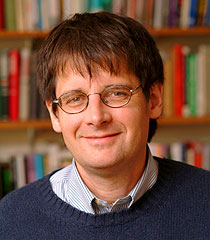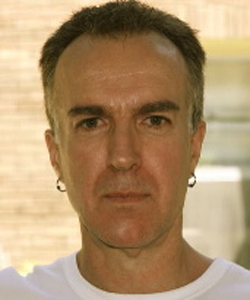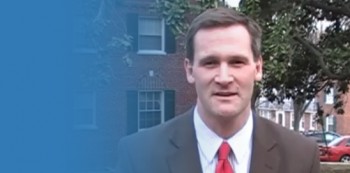Blitz history: On Lenin and the Russian Revolution
PREAMBLE:
Blitz history—How Lenin changed the world
| The material below is offered by a fraternal website, Monthly Review, an independent. non-factionalist socialist publication. Help them if you can. |
Dear Reader, we make this and other articles available for free online to serve those unable to afford or access the print edition of Monthly Review. If you read the magazine online and can afford a print subscription, we hope you will consider purchasing one. Please visit the MR store for subscription options. Thank you very much. —Eds.
Revolution and Counterrevolution, 1917–2017
The Western world has reached a new stage of development: now, the defense of the capitalist system requires the organization of counterrevolution at home and abroad. In its extreme manifestations, it practices the horrors of the Nazi regime. Wholesale massacres in Indochina, Indonesia, the Congo, Nigeria, Pakistan, and the Sudan are unleashed against everything which is called “communist” or which is in revolt against governments subservient to the imperialist countries. Cruel persecution prevails in the Latin American countries under fascist and military dictatorships. Torture has become a normal instrument of “interrogation” around the world. The agony of religious wars revives at the height of Western civilization, and a constant flow of arms from the rich countries to the poor helps to perpetuate the oppression of national and social liberation…. The counterrevolution is largely preventative and, in the Western world, altogether preventative…. Capitalism reorganizes itself to meet the threat of a revolution which would be the most radical of all historical revolutions. It would be the first truly world-historical revolution.
Today, a hundred years after the Russian Revolution and a century-and-a-half after Capital, conditions have changed. It would appear that the clock has been turned back, and the forces of global counterrevolution have triumphed. Most of the emancipatory movements that seemed to be gaining ground in the 1960s, primarily in the periphery, have been roundly defeated.
Nevertheless, the material contradictions of capitalist development—particularly in the form of the planetary ecological emergency—are in many ways more serious than ever before. Since the Great Financial Crisis of 2007–09 pulled the veil away, it is abundantly clear that the present phase of global monopoly-finance capital, with its unprecedented levels of inequality, its stagnation and instability, its civilization-destroying bellicosity, its destruction of the environment, and its new forms of political-economic reaction, threatens the future not only of this generation, but that of all generations—the very survival of humanity. As Eric Hobsbawm concluded in his history of the twentieth century, “the price of failure, that is to say, the alternative to a changed society, is darkness.”5
Reaction on a World Scale
[dropcap]I[/dropcap]f imperialist counterrevolution triumphed in the end over the revolutionary waves of the twentieth century, how are we to understand this, and what does it mean for the future of world revolution? The answer requires a survey, in desperate brevity, of the whole history of imperialist geopolitics over the last century.
The period from the mid-1870s through the First World War marked a qualitative break in the logic of capitalist development. Contemporary observers as early as the 1870s spoke of the “new imperialism,” to refer to a rapid increase in colonial acquisitions, the rise of new imperial powers, and a reemergence of inter-imperialist rivalries.6 It was in this phase of the system that monopoly capital—capitalism dominated by giant industrial and financial firms—arose. Germany and the United States were rapidly entering the new age of heavy industry and advancing by leaps and bounds into the monopoly stage of capitalism, while Britain lagged behind in both respects.7 British hegemony over the capitalist world economy, dating from the Industrial Revolution, while still unrivalled in scale, was increasingly threatened under a new multipolar order of competing core states. The last three decades of the nineteenth century were years of economic stagnation, known in Europe at the time as the Great Depression. But it also represented an age of dramatic shifts in the locus of capitalist power.
Observing these trends, proponents of imperialism in the major capitalist states developed the new pseudoscience of geopolitics, which focused on the struggle for hegemony in the world system. Geopolitics can be understood in Clausewitzian terms as war by other means, often leading to the actual outbreak of hostilities. It had its origins primarily in the United States and Germany in the 1890s, marking the rise of both nations as imperial powers. In the United States, the new outlook was best represented by Charles Conant’s “The Economic Basis of Imperialism” (1898) and Brooks Adams’s The New Empire (1902)—both of which projected U.S. political-economic hegemony over large parts of the globe, particularly the Pacific.8 The founder of the German school of Geopolitik was Friedrich Ratzel, who in the 1890s coined the term Lebensraum, “living space,” as an imperative of German policy. “There is in this small planet,” Ratzel wrote, “sufficient space for only one great state.”9
However, what can be called classical geopolitical analysis only appeared in the interwar years and during the Second World War. Its leading British theorist was Halford MacKinder, a former director of the London School of Economics and for twelve years a Member of Parliament from Glasgow. In Democratic Ideals and Reality (1919), he wrote: “The great wars of history are the outcome, direct or indirect, of the unequal growth of nations.” The object of capitalist geopolitics was to promote “the growth of empires,” ending in “a single World-Empire.”10MacKinder was famous for his doctrine of the Heartland. Hegemony over what he called the World-Island (the interlocked continents of Europe, Asia, and Africa) and through it control of the entire world, could only be achieved, he argued, by dominating the Heartland—the enormous transcontinental landmass of Eurasia, encompassing Eastern Europe, Russia, and Central Asia. The Heartland was “the greatest natural fortress on earth,” because of its inaccessibility to the sea.11 In the new Eurasian age, land power—not sea power, as in past centuries—would be decisive. In Mackinder’s famous dictum:
Who rules East Europe commands the Heartland:
Who rules the Heartland commands the World-Island:
Who rules the World-Island commands the World.12
Mackinder’s geopolitical strategy was influenced by the Russian Revolution, and used to justify imperialist counterrevolution. In 1919, the British government appointed him high commissioner for South Russia, responsible for organizing British support for General Denikin and the White Army in the Civil War. Following the Red Army’s defeat of Denikin, Mackinder returned to London and reported to the government that, although Britain was right to fear German industrialization and militarism, German rearmament, then ostensibly blocked by the Treaty of Versailles, was essential. For Mackinder, Germany constituted the chief bulwark against Bolshevik control of Eastern Europe, and thus of the geopolitical Heartland.13
Mackinder was not the only influential interwar figure to promote such beliefs. It was this same logic that led Neville Chamberlain’s government two decades later not so much to “appease” Nazi Germany, as to collude with it, in the hope that Germany would turn its guns eastward, toward the USSR. Indeed, the Treaty of Versailles, as Thorstein Veblen explained, was a “compact for the reduction of Soviet Russia,” which while “not written into the text of the Treaty,” could “be said to have been the parchment upon which the text was written.”14
In Germany, the leading geopolitical theorist of the 1930s and ’40s was Karl Haushofer, the mentor of Rudolf Hess (Deputy Führer in the Nazi regime), and himself a key adviser to Adolf Hitler. He saw the British and U.S. empires as the main threat to Germany, and thus advocated the creation of a great Eurasian intercontinental power bloc, with Germany entering into an alliance of convenience with Russia and Japan to destroy Anglo-American power. With the signing of the Hitler-Stalin Nonaggression Pact, he wrote: “Now finally, the collaboration of the Axis powers, and of the Far East, stands distinctly before the German soul. At last there is hope of survival against the Anaconda policy [the strangling encirclement] of the Western democracies.”15
In the United States, the foremost geopolitical thinker of the age was Nicholas Spykman. In America’s Strategy in World Politics (1942) and his posthumous The Geography of Peace (1944), Spykman opposed Mackinder’s Heartland, land-based geopolitical strategy, in favor of one that emphasized sea power. By controlling the coastal rimlands of Europe, the Middle East, East Asia, and the Pacific, the United States could encircle the Eurasian Heartland, then controlled by the USSR. Spykman insisted on the need for an American-British hegemony over the globe, and was primarily concerned in The Geography of Peace with preventing the USSR from establishing “a hegemony over the European rimland.” The Soviet Union, he argued, would be unable to defend itself against “a united rimland.”16 Spykman’s geopolitics exerted a powerful if largely forgotten influence on U.S. foreign policy with the advent of the Cold War, including George Kennan’s strategy of “containment,” as well as the grand designs of the Council on Foreign Relations.
In 1943, Mackinder underscored the global stakes for the U.S. empire, declaring in Foreign Affairs that “the territory of the Soviet Union is equivalent to the Heartland,” over which it could not be allowed to retain control.17 Washington’s initial geopolitical strategy adopted during the Second World War was intended to extend U.S. hegemony outward beyond what the Council on Foreign Relations called the Grand Area of the British and American empires, to further encompass continental Europe, the Middle East, and the rimlands of Asia.18 In the new anticommunist crusade, revolutions were to be fought all across the globe, but especially in these strategic areas. Not only the Council on Foreign Relations, but a succession of leading Cold War and post-Cold War strategic planners, such as James Burnham, Eugene Rostow, Henry Kissinger, Zbigniew Brzezinski, and Paul Wolfowitz, would go on to argue in similar terms.19 Washington would ultimately set itself the wider objective of dominating states and regions throughout the world, as well as controlling strategic resources, capital movements, currencies, and world trade. However, the full extent of U.S. imperial ambitions was to become apparent only in the period of naked imperialism following the demise of the Soviet Union.20
The clearest official statement of this new global ambition was the Defense Planning Guidance for 1994–1999 (portions of which were leaked to the New York Times in 1992) overseen by Wolfowitz as undersecretary of defense for policy. This became known as the Wolfowitz Doctrine, commonly associated with the rise of neoconservatism. Intended as a direct response to the disappearance of the USSR from the world stage, it explicitly declared that the new goal of U.S. geopolitical strategy would be the indefinite prevention of the reemergence of any rival power that could threaten American supremacy—that is, the pursuit of a permanent unipolar world. “Russia,” the document stated, “will remain the strongest military power in Eurasia and the only power in the world with the capability of destroying the United States.”21It thus continued to be the principal long-run target.
As Brzezinski, Carter’s national security adviser, put it in 1997 in The Grand Chessboard, “the United States…now enjoys international primacy, with its power directly deployed on three peripheries of the Eurasian continent”—Western Europe and parts of Eastern Europe, Central Asia and the Middle East, and East Asia and the Pacific Rim. The goal, he argued, was to create a “hegemony of a new type” or “global supremacy,” indefinitely establishing the United States as “the first and only truly global power.”22 The new world order then envisioned was one of U.S. unipolar power, backed by nuclear primacy. Regime change in mid-level states considered of geopolitical significance and outside the U.S. empire—even those previously tolerated in the context of the Cold War—became essential. Here the goal was not to create stable democracies—an objective never considered viable in key strategic areas such as the Middle East—but rather to destroy “rogue states” and unassimilated political blocs, particularly on the outskirts of the Eurasian Heartland and in the oil-rich Persian Gulf, that could threaten the security or hinder the expansion of the U.S. empire. The blowback from this grand strategy of destruction is most evident today in the rise of the Islamic State.
The U.S. imperial grand strategy for the post-Soviet era first outlined in the Defense Planning Guidance had as its governing assumption the eventual resurgence of hostilities with a now capitalist Russia, as that nation inevitably recovered. In anticipation of this, the U.S. hegemon and its NATO allies expanded further into Eurasia and surrounding regions, engaging in wars in the Balkans, Central Asia, the Middle East, and North Africa, tightening the noose around Russia over the quarter-century from 1992 to the present.23 This same grand imperial strategy included the suppression of all anti-systemic movements and forces in key strategic areas in the periphery, as well as attempts to constrain China militarily and politically.
Following the September 11, 2001, terrorist attacks in the United States, the New World Order originally declared by George H. W. Bush took on the additional ideological mantle of the War on Terrorism introduced by George W. Bush. This justified a strategy of permanent war and “humanitarian interventions” throughout the global periphery. In its efforts to assert total dominance over the Middle East following the 2003 Iraq War, the United States, backed by NATO, designated Iran and—particularly after the 2011 invasion of Libya—Syria as the leading Middle Eastern states sponsoring terrorism, making their demise its principal objective. Yet the real reasons for regime change in the Middle East and elsewhere, as Wolfowitz had intimated in the early 1990s to General Wesley Clark, were strictly geopolitical.24
The Obama administration, together with its NATO allies, brokered the 2014 coup in Ukraine, putting in place a pliant far-right government headed by a Western-friendly oligarch, thereby proclaiming in no uncertain terms the New Cold War against Russia. This reflected a strategic campaign in the works since at least 2007, when Vladimir Putin defiantly declared that “the unipolar policy model [of absolute U.S. global supremacy] is not only unacceptable but also impossible in today’s world.”25 The long counterrevolution against the Soviet Union was thus extended into a geopolitical struggle aimed at a reemerging, now capitalist, Russia. The latter struck back by absorbing Crimea (formerly part of Ukraine) following a referendum; seeking to stabilize conditions in eastern Ukraine on its border, particularly with respect to Russian nationals; and intervening to counter the U.S.-Saudi-sponsored proxy war against the Assad regime in Syria—thereby succeeding in preventing the toppling of its main Middle Eastern ally.
Remarkably, the new Trump administration, representing a somewhat different faction of the U.S. capitalist class—beholden particularly to the fossil-fuel industry and financial sector and drawing heavily on a lower middle-class, ultra-nationalist ideology—initially signaled a geopolitical shift, aimed at détente with Russia. This was to be accompanied by a policy of concentrating on countering the Islamic State, Iran, North Korea, and China as the principal global antagonists—a view associated with the “clash of civilizations” strategy of Samuel P. Huntington, as opposed to the Eurasian Heartland approach of Wolfowitz and Brzezinski.26The incoming administration made it clear that China, with its rapid economic growth and increasing regional power, represented the main threat to U.S. hegemony (and U.S. jobs), and hence the main target of its imperial strategy.
Nevertheless, the greater part of the U.S. military-industrial complex, from the Pentagon to the intelligence agencies to the major security contractors, has strongly resisted this shift away from Russia as the principal antagonist—to the point of insinuating treason on the part of the Trump administration for its preliminary discussions with Russian officials, portrayed as collusion with the enemy. Hence, the administration has been subject to an unprecedented number of leaks from within the national security state, and has come under investigation for its communications with Russia during the campaign and the post-election transition. For dominant sections of the U.S. ruling class, it remains essential that Russia, occupying the Eurasian Heartland, and still constituting the chief nuclear rival, should remain the principal target of U.S. grand strategy. The stability of the NATO alliance, and the entire U.S. strategy of permanently subordinating Europe to its rule, is founded on the New Cold War with Russia.
For the U.S. ruling class, the strength of the U.S. economy, the supremacy of the dollar, and hence the financial power of Washington, are all seen as dependent on U.S. global primacy. Although U.S. GDP growth and that of the other core capitalist countries has stagnated, with the West losing ground economically to a rapidly developing China, the increasingly irrational geopolitical strategy coming out of Washington still has as its objective a unipolar world order. This is to be leveraged by an array of strategic assets, including the combined weight of the triad alliance of the United States and Canada, Europe, and Japan under U.S. leadership; geopolitical dominance; military and technological power; and financial supremacy via the dollar.
The aggressiveness of this imperial strategy can be seen in the U.S. pursuit of absolute dominance in nuclear weapons capabilities under the rubric of the “modernization” of all three legs of its nuclear arsenal. The object is to take full advantage of the fact that a weakened Russia fell behind for years in maintaining and modernizing its own nuclear weaponry, allowing the United States to pull decisively ahead. U.S. nuclear strategy is now predicated on the “death of MAD” (Mutual Assured Destruction), that is, the demise of the entire system of deterrence.27 Those formulating U.S. strategic doctrine increasingly believe that the United States is currently capable, while using only a small part of its nuclear arsenal, of destroying enough nuclear weapons of an opponent in a first strike (or counterforce attack)—even in the case of Russia—to prevail in a nuclear confrontation. In short, Pentagon planners now believe the United States has attained “strategic primacy” in nuclear weapons capability.28 This would make a first strike against any enemy on Earth “thinkable” for the first time since 1945, when Truman ordered the dropping of the atomic bombs on Hiroshima and Nagasaki, resulting in hundreds of thousands of civilian casualties—in what was a political rather than a military decision, and the first real act of the Cold War.29 Ominously, with the imminent death of MAD, the other side too, in any period of nuclear tensions, has greater incentive to strike first, lest it be destroyed completely by a U.S. hegemon no longer restrained by fears of its own destruction in the event of a first strike on its part.30
“An essential feature of imperialism,” Lenin wrote, “is the rivalry between a number of great powers in the striving for hegemony.”31 Such dangers are redoubled over the long run when one capitalist nation, as in the case of the United States in the twenty-first century, seeks to create a unipolar world or superimperialist order.
In the second half of the twentieth century, the United States showed itself to be the world’s most destructive nation, killing millions in wars, invasions, and counterinsurgencies across the globe.32 This bloody legacy continues into the present: over a single Labor Day weekend, on September 3–5, 2016, the United States dropped bombs on or fired missiles at six largely Islamic countries: Afghanistan, Iraq, Libya, Somalia, Syria, and Yemen. In 2015, it dropped a total of over 22,000 bombs on Iraq and Syria alone.33 No country opposed to the United States can afford to underestimate the level of violence that could be directed at it by the U.S. hegemon.
Revolution: The Human Future
[dropcap]I[/dropcap]n the twentieth century, revolutions were as much a product of resistance to imperialism as of class struggle. They most often broke out, as Lenin observed, in the “weak links” of the imperialist world system.34 Inevitably, they were met with counterrevolution organized by the great powers of the capitalist core. Even a small uprising was likely to be seen as a threat to world capitalist rule, and was usually crushed with brutal force, as in Ronald Reagan’s massive 1983 invasion of the tiny island of Grenada, or the covert war against the Sandinistas in Nicaragua. The dominant ideology invariably blames the enormous human cost of this warfare on the revolutions themselves, rather than on imperialist counterrevolutions, which are rapidly erased from historical memory.
In 1970, MR editors Harry Magdoff and Paul Sweezy were invited to the inauguration of Chilean President Salvador Allende, who had been democratically elected as the head of a Popular Unity government, which promised to introduce socialism in Chile, starting with the nationalization of U.S. corporate assets in the country’s major industries. Magdoff and Sweezy were longtime friends of Allende’s, and their analysis at the time of his inauguration focused on the dangers arising from the close connections between the United States and the Chilean military, suggesting the strong likelihood of a military coup to be sponsored by Washington and carried out by Chile’s praetorian guard. Imperialism, they warned, respects no rule of law where challenges to the existing order are concerned. And indeed, a bloody seizure of power, led by General Augusto Pinochet and engineered by the United States, occurred three years later, taking the life of Allende and thousands of others.35
All of this reaffirms the historical truth that there can be no socialist revolution—however it should arise—that is not also forced to confront the reality of counterrevolution. Indeed, in judging revolution and counterrevolution over the last century, particular stress must be put on the strength and virulence of the counterrevolution. The struggles and errors of the revolutionists are only to be seen in the context of this wider historical dialectic.
From history textbooks to the mainstream news media, the dominant ideology in the West today presents the Russian Revolution of 1917 as an utter failure from beginning to end. The USSR, we are told, collapsed under the weight of its own internal inefficiencies and irremediable defects—though these accounts often claim almost in the same breath that it was U.S. power and military might that “won” the Cold War. It is undeniable that the history of the USSR was rife with historical tragedies and social and economic contradictions. Much of the enormous human potential that the Russian Revolution unleashed was exhausted in the devastating Civil War—in which the White Russian forces were directly supported by troops and arms from the West. The Soviet Union later fell prey to Joseph Stalin’s extreme collectivization and brutal purges.36
Nevertheless, the USSR over its history also underwent extraordinary industrial development, the conditions of the working class generally improved, and the population enjoyed certain economic securities lacking elsewhere. It was the Soviet Union that saved the West in the Second World War, beginning with the dramatic defeat of the Wehrmacht at Stalingrad—the turning point of the war—and the victorious westward march of the Red Army (though the war also took a huge toll: the USSR lost more than twenty million people). The Soviet Union’s very existence inspired movements for human liberation in the third world. With the growth of the Soviet bloc and the region’s economic and technological accomplishments, the position of the USSR in the world seemed secure well into the 1970s. Its central planning system, despite certain inefficiencies and a tendency to degenerate into an overly bureaucratized command economy, offered a new and in many ways successful approach to economic and social development in noncapitalist terms.
But the USSR failed to carry forward the socialist revolution. The postrevolutionary society that emerged generated its own bureaucratic ruling class, the nomenklatura, which had arisen from the inequities of the system. The USSR’s stubborn refusal to allow independent development in Eastern Europe (albeit viewed as a necessary buffer zone against Western invasion) was made clear in the Soviet invasions of Hungary in 1956 and Czechoslovakia in 1968.37
In the end, the USSR lost its inner dynamism, relying too much on extensive (the forced drafting of labor and resources) rather than intensive development (dynamic productivity from technological innovation and the unleashing of creative forces). It was exhausted by a decades-long military, political, and economic contest with the West, forced to compete in a massive arms race that it could ill afford.38 For all their superficial promise, Mikhail Gorbachev’s misconceived and indeed disastrous glasnost (openness) and perestroika (restructuring) policies massively undid the system, rather than reforming it. Although the loss of Eastern Europe, symbolically marked by the fall of the Berlin Wall, contributed to this unraveling, it was the Soviet nomenklatura that proved to be the system’s final undoing, as numerous representatives of the Soviet power elite and a corrupted privileged intelligentsia, in alliance with Boris Yeltsin and the West, chose to dissolve the post-revolutionary state from above—believing that their own individual and class interests would be better promoted under capitalism.39
Yet in spite of all of this, the experience of the USSR, as the first major socialist break with the capitalist system, continues to inspire and to inform revolution in the twenty-first century. Hugo Chávez’s Bolivarian Revolution—though it took an entirely different form and is now itself imperiled by a counterrevolution supported by the United States—could hardly have been imagined without the Soviet example.40 The USSR’s extraordinary economic, technological, and cultural achievements are not easily erased in the historical memory.41
The world capitalist crisis of the late twentieth century eventually engulfed the core capitalist nations themselves as they sank from the 1970s on into economic stagnation—partly counteracted by the financialization of accumulation in the 1980s and ’90s, which, however, ended with the bursting of the housing bubble in 2007–09. With the full onset of stagnation since the Great Financial Crisis, the positions of the working class and lower-middle class in the advanced capitalist states have plummeted. Inequality has reached its highest level in history, both within nations and globally.
So severe is this seemingly endless crisis that it has destabilized the state within the core capitalist countries. The ruling classes of the various capitalist countries have responded to the growing popular disenchantment by resurrecting the radical right as a kind of ballast for stabilizing the system. Neoliberalism has thus partially given way to neofascism, or what may prove to be a neoliberal-neofascist (or center right/radical right) alliance. In the United States, science itself is rejected as a threat to capitalism, with climate-change denial now the official stance of the Trump White House.42 The “destruction of reason” is thus complete.43
Reactionary forces have of course gained the upper hand many times before in the history of the class struggle, only to give rise to new revolutionary waves. Commenting on the defeat of the 1848 revolutions in Europe, Engels observed in Germany: Revolution and Counter-Revolution:
A more signal defeat undergone by the continental revolutionary party—or rather parties—upon all points of the line of battle, cannot be imagined. But what of that?… Everyone knows nowadays that wherever there is a revolutionary convulsion, there must be some social want in the background, which is prevented, by outward institutions, from satisfying itself…. If, then, we have been beaten, we have nothing else to do but to begin again from the beginning.44
Although the historical conditions have been transformed many times over, these sentiments still ring true. Given today’s ever more desperate need for social change, it is necessary “to begin again from the beginning,” creating a new, more revolutionary socialism for the twenty-first century. Massive, democratic, egalitarian, ecological, revolutionary change in both center and periphery represents the only truly human future. The alternative is the death of all humanity.
Notes
- ↩Karl Marx and Frederick Engels, “Preface to the Second Russian edition of the Manifesto of the Communist Party,” in Teodor Shanin, ed., Late Marx and the Russian Road (New York: Monthly Review Press, 1983), 138–39.
- ↩The analysis differs here from most world-systems theory, which sees the successive hegemonies of the Dutch, the British, and the United States within the world-economy as essentially the same, denying the distinctiveness of the monopoly stage of capitalism.
- ↩For a history of revolutionary waves in the periphery up until the 1980s see L. S. Stavrianos, Global Rift: The third world Comes of Age (New York: Morrow, 1981).
- Imperialism, the Highest State of Capitalism (Moscow: Progress Publishers, 1939),13–14, 106–08. On the shift of revolution to the third world and its impact on Marxian theory, see Paul M. Sweezy, Modern Capitalism and Other Essays (New York: Monthly Review Press, 1972), 147–65.
- ↩Eric Hobsbawm, The Age of Extremes (New York: Vintage, 1994), 585.
- ↩R. Koebner and H. D. Schmidt, Imperialism: The Story and Significance of a Political Word, 1840–1960(Cambridge: Cambridge University Press, 1965), 175.
- ↩E. J. Hobsbawm, Industry and Empire (London: Penguin, 1969), 172–93.
- ↩Charles A. Conant, “The Economic Basis of Imperialism,” North American Review 167, no. 502 (1898): 326–40.
- ↩Ratzel quoted in Robert Strausz-Hupé, Geopolitics: The Struggle for Space and Power (New York: Putnam, 1942), 31.
- ↩Halford Mackinder, Democratic Ideals and Reality (New York: Holt, 1919), 1–2.
- ↩Halford Mackinder, “The Round World and the Winning of the Peace,” Foreign Affairs 21, no. 4 (1943): 601.
- ↩MacKinder, Democratic Ideals and Reality, 186.
- ↩Thorstein Veblen, Essays in Our Changing Order (New York: Viking, 1943), 464.
- The Chamberlain-Hitler Deal (Edmonton, CA: Éditions Duval, 1995).
- Geography of Peace (New York: Harcourt, Brace, 1944), 43, 57.
- ↩Halford Mackinder, “The Round World and the Winning of the Peace,” 598.
- The Politics of War (New York: Random House, 1968).
- ↩See John Bellamy Foster, “The New Geopolitics of Empire,” Monthly Review 57, no. 8 (January 2006): 9–14.
- ↩John Bellamy Foster, Naked Imperialism (New York: Monthly Review Press, 2006).
- From MAD to Madness: Inside Pentagon Nuclear War Planning (Atlanta, GA: Clarity, 2017), 275–77.
- ↩Zbigniew Brzezinski, The Grand Chessboard: American Primacy and Its Geostrategic Imperatives (New York: Basic, 1997), 3, 10, 30–39.
- ↩Richard N. Haass, “The New Thirty Years War,” Project Syndicate, July 21, 2014, http://project-syndicate.org.
- ↩General Wesley K. Clark, Don’t Wait for the Next War (New York: PublicAffairs, 2014), 37–40.
- ↩Putin quoted in Johnstone, “Doomsday Postponed?” 277.
- ↩Samuel P. Huntington, The Clash of Civilizations (New York: Simon and Schuster, 2011).
- ↩Johnstone, “Doomsday Postponed?” 275.
- The New Era of Nuclear Weapons, Deterrence, and Conflict,” Strategic Studies Quarterly 7, no. 1 (2013): 3–14, “The Rise of U.S. Nuclear Primacy,” Foreign Affairs 85, no. 2 (2016): 42–54; Hans M. Kristensen, Matthew McKenzie, and Theodore A. Potsoi, “How US Nuclear Force Modernization is Undermining Strategic Stability: The Burst-Height Compensating Super-Fuze,” Bulletin of the Atomic Scientists, March 1, 2017.
- The Decision to Use the Atomic Bomb (New York: Vintage, 1996).
- These Nuclear Breakthroughs Are Endangering the World,” Foreign Policy in Focus, April 26, 2017.
- ↩Lenin, Imperialism, 91.
- ↩On casualties from U.S. warfare in the periphery, especially those of civilians, see John Tirman, The Deaths of Others: The Fate of Civilians in America’s Wars (Oxford: Oxford University Press, 2011), 316–36. On the history of U.S. military interventions from 1945 through the 1980s, see Gabriel Kolko, Confronting the Third World (New York: Pantheon, 1988).
- How Many Bombs Did the United States Drop in 2015?” Council on Foreign Relations blog, January 7, 2016, http://blogs.cfr.org; Tom Engelhardt, “You Must Be Kidding: The Exasperating, Never-Ending Sprawl of American Empire,” In These Times, September 23, 2016.
- ↩Lenin, Imperialism, 9–14.
- Monthly Review 22, no. 7 (December 1970): inside covers.
- ↩Ian C. D. Moffat, The Allied Intervention in Russia, 1918–1920 (London: Palgrave Macmillan, 2015).
- The Soviet Century (London: Verso, 2005), 348, 385; Samir Amin, Russia and the Long Transition from Capitalism to Socialism (New York: Monthly Review Press, 2016), 57–58; Paul M. Sweezy, Post-Revolutionary Society (New York: Monthly Review Press, 1980), 113–33.
- ↩Harry Magdoff and Paul M. Sweezy, “Perestroika and the Future of Socialism,” Monthly Review 41, no. 10 (March 1990): 1–13 and 41, no. 11 (April 1990): 1–7. The USSR operated on its production possibilities curve, relying on full capacity production, while monopoly-capitalist economies like the United States operated below their production possibilities curve, with substantial idle capacity. This meant that the former always faced a choice between “guns and butter,” while the latter was able to expand both guns and butter—and indeed more butter because more guns. This understanding was the basis of “military Keynesianism.” On the role that U.S. military Keynesianism played in forcing the USSR into a damaging arms race, see John Bellamy Foster, Hannah Holleman, and Robert W. McChesney, “The U.S. Imperial Triangle and Military Spending,” Monthly Review 60, no. 5 (October 2008): 2–9.
- ↩Mikhail Gorbachev introduced the conditions that led to the downfall of the Soviet state, but it was Yeltsin who carried out the coup de grâce, going so far as to initiate an armed overthrow of the elected parliament, cheered on by the capitalist West.
- ↩This is quite literally so, since many of Chávez’s revolutionary ideas, as he often acknowledged, were drawn from Mészáros’s critique of the “capital system,” which encompassed the USSR, in István Mészáros, Beyond Capital (New York: Monthly Review Press, 1995).
- ↩See Amin, Russia and the Long Transition.
- Neofascism in the White House,” Monthly Review 68, no. 11 (April 2017): 1–30.
- ↩Georg Lukács, The Destruction of Reason (London: Merlin, 1980).
- ↩Frederick Engels, Germany: Revolution and Counter-Revolution (New York: International Publishers, 1969), 9–10.
 JOHN BELLAMY FOSTER serves as editor of Monthly review. Professor Foster, who teaches at University of Oregon, received his PhD from York University. His research is devoted to critical inquiries into theory and history, focusing primarily on the economic, political and ecological contradictions of capitalism and imperialism, but also encompassing the wider realm of social theory as a whole. Professor Foster's teaching encourages in-depth, critical exploration of history and ideology, equipping students to learn to learn on their own.
JOHN BELLAMY FOSTER serves as editor of Monthly review. Professor Foster, who teaches at University of Oregon, received his PhD from York University. His research is devoted to critical inquiries into theory and history, focusing primarily on the economic, political and ecological contradictions of capitalism and imperialism, but also encompassing the wider realm of social theory as a whole. Professor Foster's teaching encourages in-depth, critical exploration of history and ideology, equipping students to learn to learn on their own.
- E-mail: jfoster@uoregon.edu







